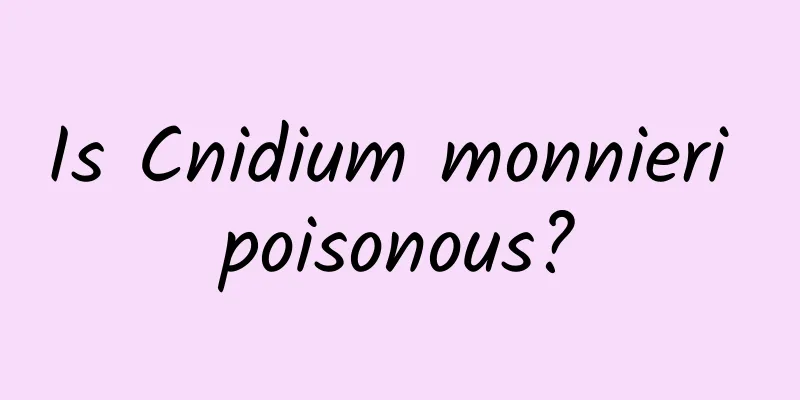What are the medicinal values of Rehmannia glutinosa?

|
Rehmannia root is a relatively commonly used Chinese medicinal material. Since it is a traditional Chinese medicine, Rehmannia has very good medicinal value. Although Rehmannia has great medicinal value, it should be used according to its medicinal properties, so that it will be safer and more reliable. This requires us to fully recognize the medicinal value of Rehmannia glutinosa. So what is the medicinal value of Rehmannia? Let’s talk about it below. The efficacy and function of fresh Rehmannia root 【Effects of Fresh Rehmannia glutinosa】 Fresh Rehmannia root is the underground tuber dug out in autumn, which is stored in moist sandy soil with stems and leaves removed to prevent damage to the skin. Its surface is brown-yellow or reddish-brown, with semicircular nodules, bud scars on the nodes, and often with curved wrinkles and transverse lenticels. The cross section is fleshy and yellow-white in color. It tastes sweet, slightly bitter and is cold in nature. There are three types of Rehmannia: fresh, raw and cooked. All three have the effect of nourishing yin and promoting body fluid. Fresh Rehmannia root is sweet, bitter and very cold. It is mostly used to clear heat and cool blood, purge fire and relieve restlessness, but its yin-nourishing effect is slightly weaker. Raw Rehmannia root is sweet, cold and moist in nature. It is mostly used for thirst, dry throat, and fever in the five hearts. It has the effect of nourishing the yin of the heart and kidneys, but its ability to cool the blood is slightly weaker. Rehmannia glutinosa is sweet and warm in nature, and enters the liver and kidneys, and has very good effects of nourishing blood, nourishing yin, replenishing essence and benefiting marrow. 【Function of Fresh Rehmannia glutinosa】 1. Effect on blood sugar: Some people have reported that Bawei Dihuang Decoction has a reducing effect on alloxan-induced hyperglycemia in rats. 2. On the circulatory system: Intravenous injection of Rehmannia glutinosa extract in rabbits and dogs can increase blood pressure and has a diuretic effect. The alcohol extract has a cardiotonic effect on isolated frog hearts at a medium concentration, but inhibits it at a high concentration. 3. Antibacterial: Preliminary test results of Rehmannia glutinosa in vitro indicate that it has a certain inhibitory effect on certain pathogenic fungi. 4. Liver protection: Rehmannia root decoction can protect the liver and prevent the reduction of glycogen in mice with experimental carbon tetroxide poisoning hepatitis. 5. Hemostatic effect: The yellow needle-shaped crystals obtained from the ethanol extract of Rehmannia glutinosa can shorten the coagulation time of rabbits, while the effect of the water decoction is not obvious. 10g/kg of water decoction or alcohol extract, as well as Rehmannia glutinosa charcoal, can shorten the tail bleeding time of mice. 6. Diuretic effect: After anesthetized dogs were given Rehmannia glutinosa extract IV, the amount of urine per unit time increased. The diuretic effect may be related to its cardiotonic and renal vascular dilation effects. It has been reported that the water decoction and alcohol extract of Rehmannia root have not been proven to have a diuretic effect on rats. 7. Laxative effect: Catalpol glycoside has a delayed and mild laxative effect, and the ED50 of laxative effect in mice is 0.34g/kg. 8. Other effects: The decoction of Rehmannia root, alcohol extract or 10g/kg can produce a synergistic effect on the hypnotic effect of sodium pentobarbital. 20g/kg of Rehmannia root decoction or alcohol extract has a significant protective effect on decompression and hypoxia in mice. The medicinal value of Rehmannia is very good. At the same time, all drugs have certain side effects. Therefore, when using Rehmannia, it is best to use it under the guidance of a doctor to avoid misuse of the drug. If such a situation occurs, it will not only fail to treat the disease, but also pose a direct threat to physical health. |
<<: What are the medicinal values of animals?
>>: What are the medicinal values of Di Gu Pi?
Recommend
Throw away these packages immediately after receiving them! Beware of various express delivery frauds →
No online shopping But can you receive express de...
The history of smallpox eradication: You should know
As one of the viruses that has completely disappe...
Reminder! Be careful when buying medicines with these words on the box!
Expert of this article: Wang Xiaohuan, Doctor of ...
The efficacy and function of cold poison grass
The Chinese herbal medicine Lengducao is a relati...
What shade of red is the red of the mullet?
In 2020, an illegal fishing case occurred in Kaiz...
The efficacy and function of Rubus rubus
Speaking of red-haired Rubus, I believe many frie...
The efficacy and function of pulverulence fungus
Psoralea corylifolia is a medicinal material that...
Is superluminal travel really coming? The first curvature bubble has been discovered, and there is hope for warp drive research
The speed bottleneck limits the pace of human exp...
The efficacy and function of flame grass
As a traditional Chinese medicine, flame grass ha...
The efficacy and function of water hibiscus
Water hibiscus is a traditional Chinese medicine....
The efficacy and function of floating sea stone
There are many common Chinese medicinal materials...
Medicinal value of Rehmannia glutinosa
In our lives, the medicinal material Rehmannia gl...
The efficacy and function of stinky goat
Many people are not very clear about stinky goats...
The efficacy and function of the brocade
Ground ivy is a very nutritious and precious medi...
The efficacy and function of mulberry branches
Medicine is common in our daily life. There are d...









